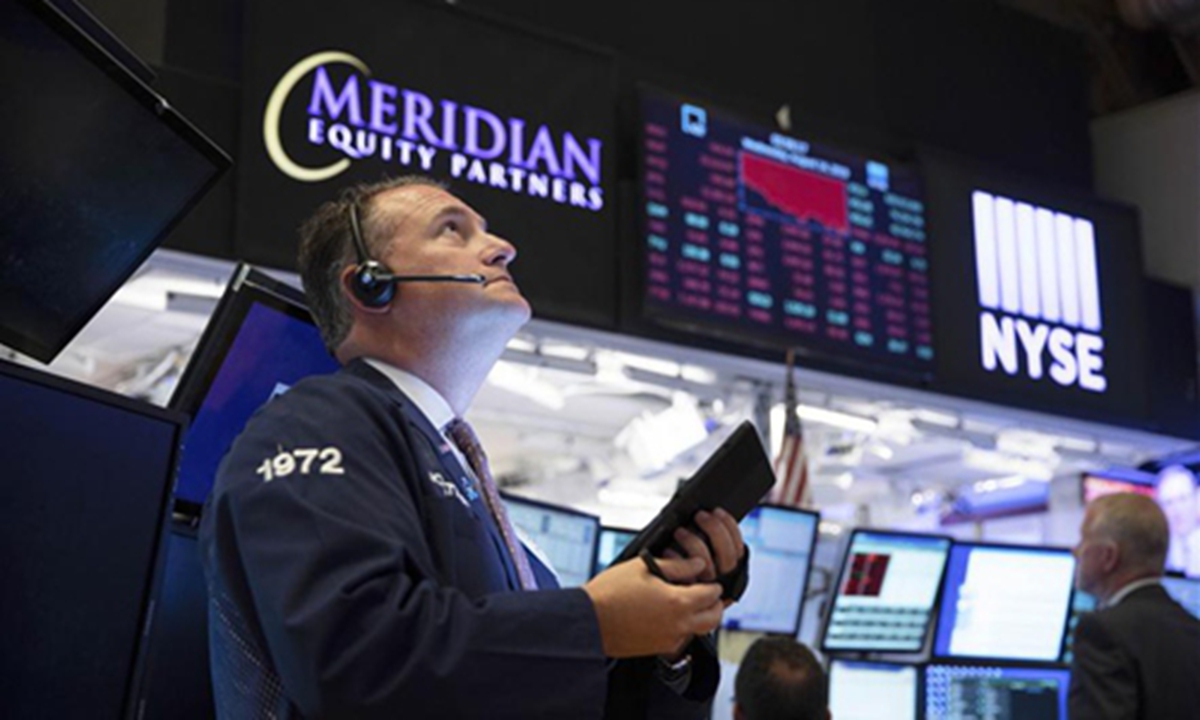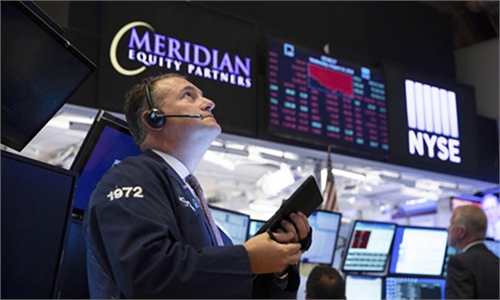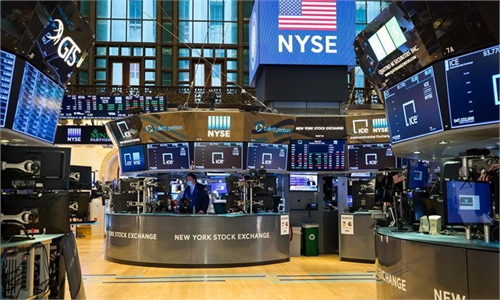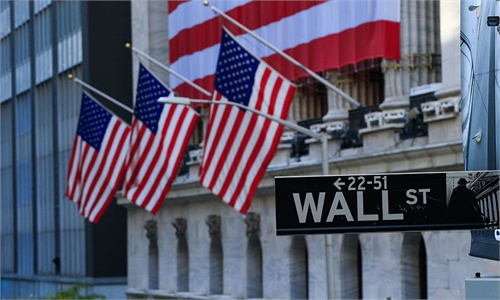
Photo: Xinhua
No matter how bad things get, investors in the US stock market seem to be seeing only good news supporting the crazy upward march.On Friday, the Dow Jones Industrial Average added 0.18 percent to 31,097.97, while the S&P 500 rose 0.55 percent to 3,824.68. The tech-heavy NASDAQ Composite closed up 1.03 percent to 13,201.98. While analysts generally note that hopes of additional fiscal stimulus to ride out an economic downturn have lifted the market sentiment, the explanation still looks feeble for the robust stock market performance during a dramatic political week.
All of the three major US indexes ended the first week of 2021 at record highs, even though the beginning of the country's year was full of turbulence and hardship. In a sign of the emerging impact of the restrictions imposed to curb the surging COVID-19 cases, the US economy saw job losses in December for the first time in eight months.
As the US continues to lead the world in overall coronavirus cases and deaths, there seems no hope of flattening the curve in the country. As of Friday, total US cases surpassed 21.5 million, with a national death toll of more than 365,000.
The past week also witnessed an unprecedented invasion of the US Capitol. While the world was shocked by the US society's severe division, investors appeared quick to turn the page on the political turmoil.
The rollout of vaccines was previously regarded as an end to all the economic pains brought about by the coronavirus pandemic. Yet, public hesitancy and other problems, such as supply chain and logistics issues, have made the vaccination process slow. With no hope in sight of bringing the pandemic under control in the short term, even with the help of vaccines, prospects for the US economy, which is now relying heavily on the economic stimulus, are uncertain.
Despite all the negative factors, the US stock markets still extended the 2020 rally to 2021, a serious deviation from their economic fundamentals. At a time when the US economy is facing all kinds of pandemic-led problems and has entered a recession, major US stock indexes are at all-time highs amid rising optimism. All of these factors seem suspiciously abnormal and dangerous.
Much of the current confidence in the stock markets comes from the belief that economic stimulus and policy will continue to inject liquidity into the financial system. While there is no denying that the Fed's unlimited quantitative easing has become an important measure of supporting the economy, most of the liquidity has actually pushed up the prices of financial assets instead of lifting the real economy under the current circumstances.
In fact, the long bull market starting from 2009 has seen bubbles in the US market. The global economy needs to be prepared for the consequences of the bubble bursting.



